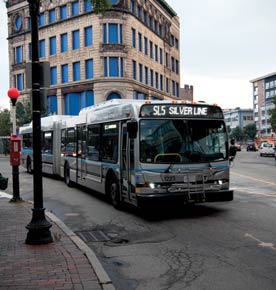Making Banks Pay
Since early 2010, the Alliance of Californians for Community Empowerment, or ACCE, and its members have examined the role of Wall Street banks in our economy and in our lives as we have waged campaigns to reduce foreclosures and “make the banks pay” for the havoc they have wreaked on our communities. We spent time looking into the issue of Wall Street money and its influence on California politics. Through this process our members have come to understand that community organizations with ambitions to build power in order to achieve some measure of economic, social, and racial justice need to spend at least as much or more time taking on the corporate elite — the shadow government behind the elected officials who we try to hold accountable — as we currently spend fighting “city hall.”
Organizers often look for the intersection between a “hot” base or constituency — one that is ready to move — and a strategic campaign that has the potential to deliver wins and build power for our communities.
Increasingly, many of us look for opportunities to wage campaigns that shift the narrative from blaming government, unions, immigrants, and other scapegoats to forcing big banks and big corporations to be held accountable for fixing the crisis they created. Right now, we have an opportunity to tap into peoples’ anger and go on the offense with a campaign that goes after a central culprit — Wall Street.
Since mid-2010, ACCE has been working with partners such as PICO California and various SEIU locals to build a coalition campaign, now called Refund California. This campaign advances interim solutions to reduce foreclosures, raise revenue, and stabilize neighborhoods, while organizing and building a movement with others to hold banks accountable and reform the financial system. Similar efforts are being mounted across the country and being linked together as a national campaign, called New Bottom Line (see p. 8). Our longer-term goals are nothing if not ambitious. Our only chance of success is through a national movement to hold Wall Street accountable.
In California, our campaign is a fight for fairness.
- Fair Share: Advance local and state policies that make banks mitigate the costs incurred by the foreclosure tsunami and pay their fair share in taxes. This includes enacting “bank blight” ordinances that fine banks $1,000 per day for failing to maintain vacant properties that they own. There is also a proposed state foreclosure tax, currently stalled in the legislature, that would have banks/servicers pay $20,000 per foreclosure to help reimburse local and state government and schools for the fiscal impact of the foreclosure crisis
- Fair Finance: Get Wall Street banks to cancel or renegotiate the interest rate swap deals that are ripping off many cities, school districts, transportation districts, and the state.
- Fair Lending: Demand that banks use principal reduction as a standard loan modification strategy and that they clean up their loss mitigation process.
In addition to taking our demands directly to the banks, we have been working on three goals at the state government level: passing state legislation to prevent the practice of “dual tracking,” where a bank moves forward with the foreclosure while the borrower is still in the middle of negotiating a resolution with the bank; pushing the state attorney general’s office to include principal reduction as part of the 50-state settlement being negotiated; and securing a court-based mediation program that brings banks before a retired judge and helps to enforce fair loan modification negotiations. The program currently only exists in Orange County, leaving the rest of the state’s homeowners with no form of due process.
To work on all of these goals, the Refund California campaign is starting with a strategic organizing process. We aim to build a large base of struggling homeowners who move into escalating direct action on banks and in support of the agenda, develop the knowledge and leadership capacity of core activists and build a broad and diverse coalition both locally and statewide. Working with this organized base, we are putting direct pressure on targeted corporations, including escalating actions by homeowners and supporters, divestment by cities and major shareholders, exposing the issue of bank influence over politicians, running local and state policy campaigns to get elected officials to stand up to the banks, and turning our agenda into campaign issues during electoral season. We are also implementing a strong communications plan that brings statewide, if not national, attention to the coordinated local activities across the state and helps to make the role of the banks in rebuilding California a major topic in the news.
We’ve had a number of victories:
- ACCE, together with SEIU and PICO, passed ordinances in Los Angeles, Oakland, and Richmond that have the potential to bring in millions of dollars in fines on banks for leaving vacant, blighted properties in our neighborhoods.
- Our campaign partner SEIU Local 1021 got the city of San Francisco to push JPMorgan Chase to renegotiate an interest rate swap deal, saving $43 million and insuring that a major cultural landmark — The Asian Art Museum — remained solvent.
- In both Los Angeles and San Francisco counties, assessors collected some $15 million each in additional funds from property taxes after ACCE, SEIU 721, and SEIU 1021 pushed them to reassess bank properties that had changed hands.





Comments